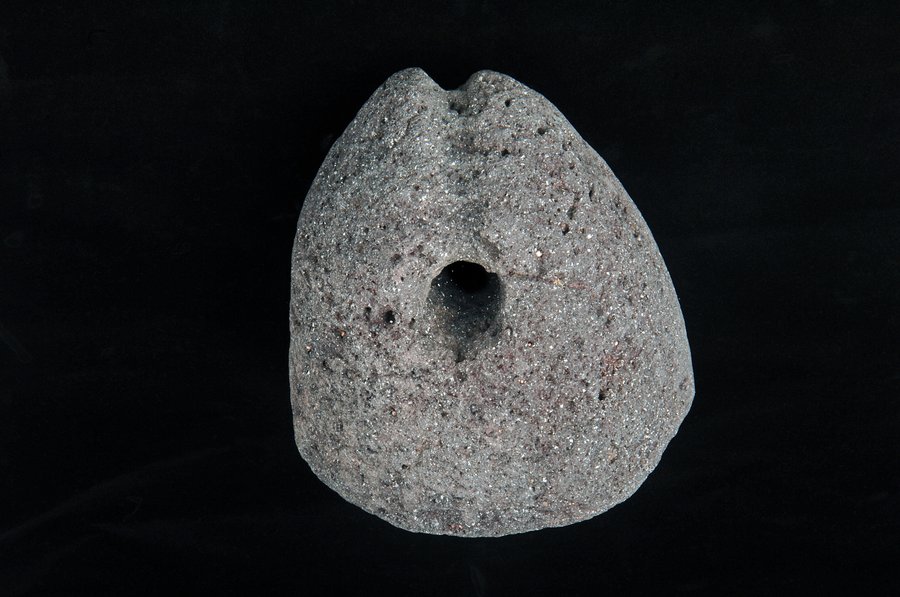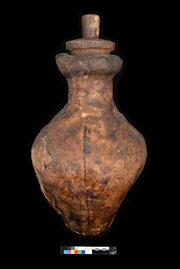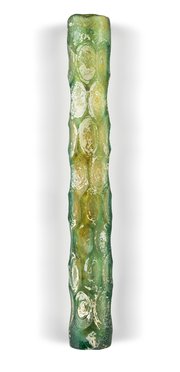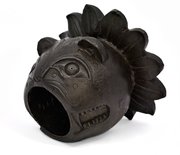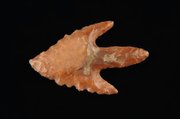
Pearl diver's (weight)
National Museum of Qatar
- Title:
- Pearl diver's (weight)
- Production place:
- Kish
- Date:
- 1700 - 1899
- Period:
- 18th century CE
- Title:
- Pearl diver's (weight)
- Production place:
- Kish
- Date:
- 1700 - 1899
- Period:
- 18th century CE
- Material:
- Haematite
- Dimensions:
- 150 × 124 × 145.3 mm
This oval pearl diver's weight was found at the 18th-century site of Al Zubara. It has a hole at one end and a groove where the rope has rubbed away the stone during repeated use. It is made from a particular kind of heavy, glittering stone, probably haematite which is known as lasif. Some believe this was sourced from the island of Kish, Iran, but it is also said to be found on the seabed around other small islands in the Gulf. Other sorts of dense stone were occasionally used, and lead diving weights became common towards the end of the pearl diving industry in the early 20th century.
The weight would be attached to a rope, and the diver would hook his foot through a loop or twist the rope around his leg in order to descend quickly. Once he reached the seabed, he would release the boat and his hauler, who remained on the boat, would pull it back up. The diver also had a second rope, attached to his oyster basket, used to pull him back up once he ran out of breath.
